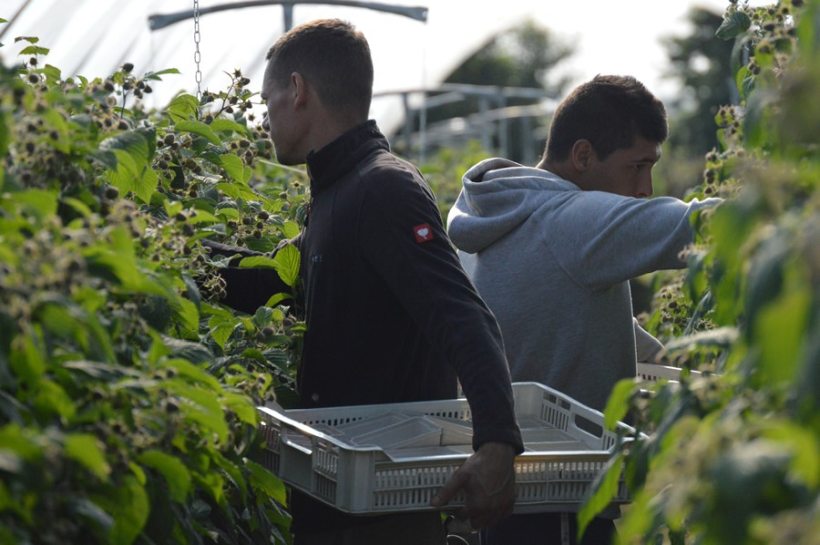
The government has been warned that food security in the UK is dropping, after its own figures show that fewer households are now able to feed themselves well.
The warning follows a Defra report revealing that the percentage of highly food secure households has dropped from 87% in 2019-20 to 83% in 2022-23.
A highly food secure household is defined as all people, at all times, having access to enough food for an active, healthy life.
While a large majority of households continue to be food secure, the report - entitled the United Kingdom Food Security Report - revealed a notable decrease.
Defra said this coincided with increased financial pressures to household budgets from both high general inflation and high food inflation.
Overall, access to food and a balanced diet in the UK is being threatened by climate change, food inflation and Brexit, the department warned.
The UK produces approximately 60% of the food that Brits consume, with 40% coming from imports.
NFU president Tom Bradshaw recently warned the Environment, Food and Rural Affairs (EFRA) committee that the government was putting food security at risk.
He called for changes to how farmers are paid for their food, warning that “with food, we are producing at very, very low returns, supporting the whole of society."
The Liberal Democrats blamed the current Labour government, and the previous Conservative ones, for 'completing neglecting' farmers.
“These statistics are a stark reminder of just how important farming communities are to the rest of the country as producers of food and the stewards of our countryside," said Tim Farron, the party's rural spokesperson.
"The failure of both the Conservative and Labour governments is that their agricultural policy actively disincentivises the production of food. This is as outrageous as it is foolish.
"Farmers are both food producers and environmentalists so they know that this approach is wrong and we agree with them."
The Soil Association went further, and called for a 'rapid and radical action to overhaul' of the UK's food system.
“The picture painted in the report is deeply concerning, but there are also glaring omissions," said the charity's head of food policy, Rob Percival.
"Little attention is given to climate tipping points which might radically impact future UK food security.
"Climate breakdown and nature loss are already undermining the UK’s food security, and it’s going to get worse. We need this new government to listen."
The report said that low-income and disabled groups are at disproportionately high risk of household food insecurity and its potential negative impacts.
In England, the lowest rate of food security is in the north-west (87%), followed by the north-east, Yorkshire and the Humber, and the West Midlands, each on 88%.
Food security was highest in the east, south-east and south-west of England, all on 92%.
Among the UK's nations, Scotland had the lowest percentage of food-secure households at 89%, while Northern Ireland had the highest at 91%.
